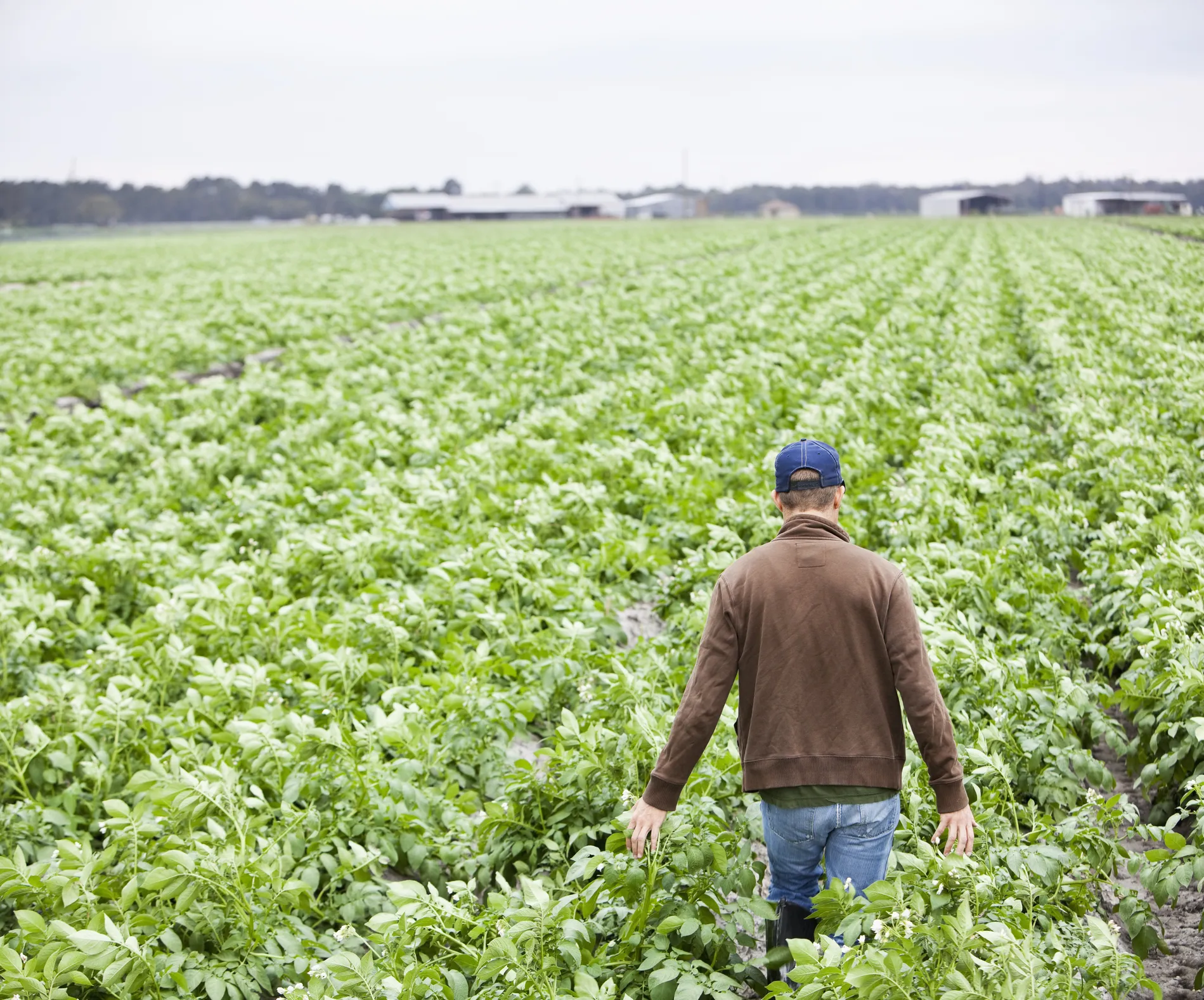Ag Policy: Let Your Voice Be Heard!
The decisions made inside the White House, State Capitols and even
County Offices have tremendous impact on how we farm. Ecological
incentives, resources, minimum wage requirements, and market
prices are just a few of the countless facets our government
influences agricultural.
Legislature can offer protection and support, but it can also
overlook realities felt by the farmer, particularly that of the
smaller, ecological grower. This is precisely why it’s important
for farmers to voice their experiences and needs.
I spoke with Paul Towers, Organizing Director & Policy
Advocate at
Pesticide Action Network
for advice on how farmers can let their voice be heard. He
outlines that each type of legislation has different processes,
“as you move up in government, they become increasingly more
inaccessible.”
The takeaway is that you’re more likely to influence change on the
state level. There’s a reason “all politics is local” is a popular
catchphrase at all levels of government.
What about the upcoming Farm Bill?
But first, let’s provide a quick primer of the Farm Bill. The
Farm Bill
is vast, often confusing, influential and looming as we await the
new 2018 version. If you want to learn more about what it is check
out the
National Sustainable Agriculture Coalition’s info page for a great synopsis; for a diagram of the
procedures, check out
this visual
put out by Congresswoman Pingree in Maine.
Towers offers a breakdown of how the Farm Bill process works,
“Typically a proposal is presented, then debated through various
committees (which is when you should weigh in--call!), and then
goes to the floor in congress.” What’s tricky is that the timeline
for all of this is elusive. “There were talks of a proposal being
presented as far back as last October, and now there are hints of
a mid-February release but we really don’t know.”
No one can really predict when the 2018 Farm Bill will be
introduced, and it’s heavily skewed toward DC insiders. Paul also
points out that “the current congress is not holding public
hearings the way we’ve seen in the past, so there’s great concern
that the window for feedback may be very narrow.” The best thing
you can do is voice your opinions and concerns now, before the
Bill even comes out. Growers are often not heard enough throughout
this process. Whether you rally together with other farmers around
a cause or send a out a simple “Tweet,” remember that our
legislators are here to represent you -- they need to listen to
your concerns!

Given the inherent limitation of a farmer’s time and resources,
I’ve outlined some quick, easy, and accessible
methods for the greatest impact.
Know your representatives
To find out who your legislative representatives are, simply type
in your address
here. Clicking on each legislator will disclose all contact
information, their committee affiliations, bills they’ve
sponsored, and how they’ve recently voted. “Get to know a little
bit about their background, so you know how to reach them on
issues that matter to you. The best way to communicate is to tell
a good story” says Paul. Make sure you are clear on what you’d
like to say, and on how you can introduce your story in a way that
will resonate with them.
Know how to reach them
In person is always the most effective method, short of a phone
call, followed by a letter, then an email. Here’s the breakdown:
various communication methods are ascribed different weights of
influence. For example, a phone call may be given the numerical
weight of 9 constituents, while an email may only be held as a
fraction of one. Often times an email inbox is set up with
filters; based on keywords and topics from incoming messages,
they’re filed into various categories, and often aren’t even
read. “The difference with a phone call,” says Paul, “is
that someone has to listen.”
Paul locates the effectiveness of writing a letter somewhere in
between a phone call and an email, but he also advises that
“Twitter is actually the clearest and easiest way to reach your
decision-makers.” Tagging (@ mention) your representative can be a
really effective method. He points out that a “tweet” doesn’t get
spammed like email does and representatives are more likely to be
managing their own account (unlike email), so they’re more likely
to take note and see your message. Twitter has a
list
of U.S. Representatives and their official accounts with links to
follow each one. If you’re looking for more information about
communicating with legislators through Twitter, Rikki Amos, from
the Public Affairs Council outlines more detailed tips in
this article.
Town Hall Meetings
Be aware of any town hall meetings that your local Congress
representative is holding near you. Most representatives do this
annually in bigger towns around their district. Generally they
speak for a brief introduction and then go right into
questions.
If you know specifically what you want to discuss as it relates to
agricultural policy, get in line for a question right from the
start of the session and have your question prepared on paper if
you think you might get nervous. There’s nothing wrong with
reading off a question into a microphone.
Even if your representative might not be familiar with
agricultural policy issues, just hearing that it’s important to
constituents in his or her district will make an impression. Then
you can also follow up with your letter, calls or tweets as
described above referencing the topic you raised in the town hall
meeting.
Office Visit
Lastly, many congressional members have some sort of office hours
when the public can pass through their local office to speak with
them or their staff. This might be the most time-intensive option
-- but also the most impactful way to talk about your issues as a
small farmer. But you’re not guaranteed time with the
representative so there’s a risk in terms of opportunity cost of
your time.
Don’t be shy, bring up the important issues that impact your farm
and your business with local leaders. Let your voice be heard.

Jane works as a Field Production Specialist at the Center for
Agroecology and Sustainable Food Systems, where her days are
filled with tractor work, irrigation coordination, orchard
care, and educating apprentices and interns. Her favorite way
to end a long day's work in the sun, is running down the hill
to Mitchell's Cove and jumping in the Pacific.